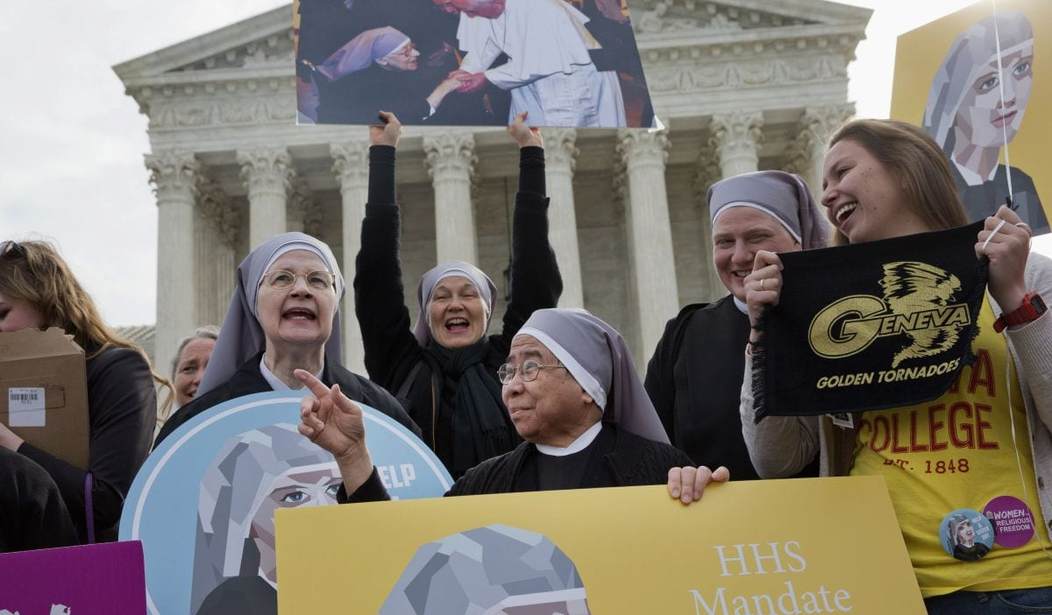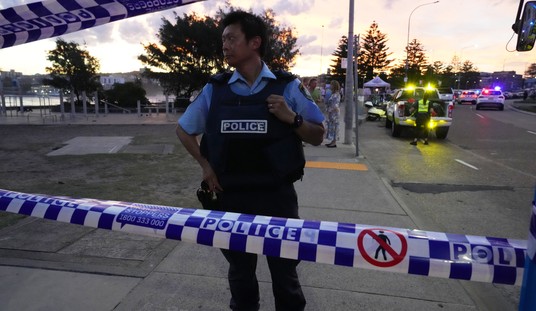In a decision that “pleased” the White House, the Supreme Court ordered Zubik v. Burwell, the Obamacare contraceptive mandate case brought by the Little Sisters of the Poor and other non-profits, back to the lower courts so that the government and plaintiffs could work out a compromise.
The unsigned, unanimous opinion did not rule on the merits of the arguments. The court believes that the two sides can work out a solution that “accommodates petitioners’ religious exercise while at the same time ensuring that women covered by petitioners’ health plans ‘receive full and equal health coverage, including contraceptive coverage.'”
The justices want the lower courts to find a solution that allows religious institutions to object to providing birth control but also keeps intact Obamacare’s coverage protections. The health law requires employers provide contraception in their employee health plans because birth control is necessary for women’s health care and good public health.
The Obama administration said it was “pleased” with the decision.
“It will allow millions of women across the country to continue to get the health care coverage that they need,” said White House spokesman Josh Earnest. So this obviously is an outcome that we are pleased to see.
He said the White House is still concerned with the Republican opposition to confirming Supreme Court nominee Merrick Garland. But, “it’s not obvious that an additional justice would have yielded a different result.”
The ruling is the court’s fourth related to Obamacare since 2012. The justices have upheld the most significant parts of the president’s health care law — the individual mandate and the health insurance subsidies — but have ruled against the law’s Medicaid expansion and one aspect of its birth control coverage rules.
The court took a tortured path to the Zubik decision. Two years ago in Hobby Lobby v. Burwell, the justices ruled the same Affordable Care Act contraception coverage requirement violated the religious beliefs of certain for-profit companies. The court said that the administration cannot require these owners to include birth control in their insurance plans.
But the non-profit organizations operated under different rules than the for-profit businesses. The Obama administration, in an attempt to find compromise with the non-profits, said that these religious organizations can have their insurers or third-party administrators provide the coverage. The non-profits argued that the compromise didn’t satisfy their concerns and they carried on with the lawsuit.
Lyle Denison of SCOTUS blog believes that the absence of a 9th justice played a role.
One reading of Monday’s developments was that the Court, now functioning with eight Justices, was having difficulty composing a majority in support of a definite decision on the legal questions. Thus, what emerged had all of the appearance of a compromise meant to help generate majority support among the Justices. With this approach, the Court both achieved the practical results of letting the government go forward to provide the contraceptive benefits and freeing the non-profits of any risk of penalties, even though neither side has any idea — at present — what the ultimate legal outcome will be and, therefore, what their legal rights actually are under the mandate.
The court indicated during oral arguments that it was eager to decide the religious liberty question. But the death of Scalia meant that conservatives came up short one justice, so the religious non-profits will have to try to work out a deal with the administration.
I don’t see that happening. The administration and liberals on the court apparently have no clue what “free exercise” of religion means. The theological beliefs that underpin the objection to the mandate by the non-profits are not negotiable. While the lower courts will try to find a “work around” for those beliefs, the non-profits believe you can’t “work around” faith and theology.
It’s not a question of being reasonable or unreasonable. It is a question of faith — the very foundation of religious liberty. The president and his liberal allies on the court have got to be made to see that or religious freedom in this country will be destroyed — run over by a government that feels it can violate the most sacred tenets of someone’s religion with impunity.










Join the conversation as a VIP Member